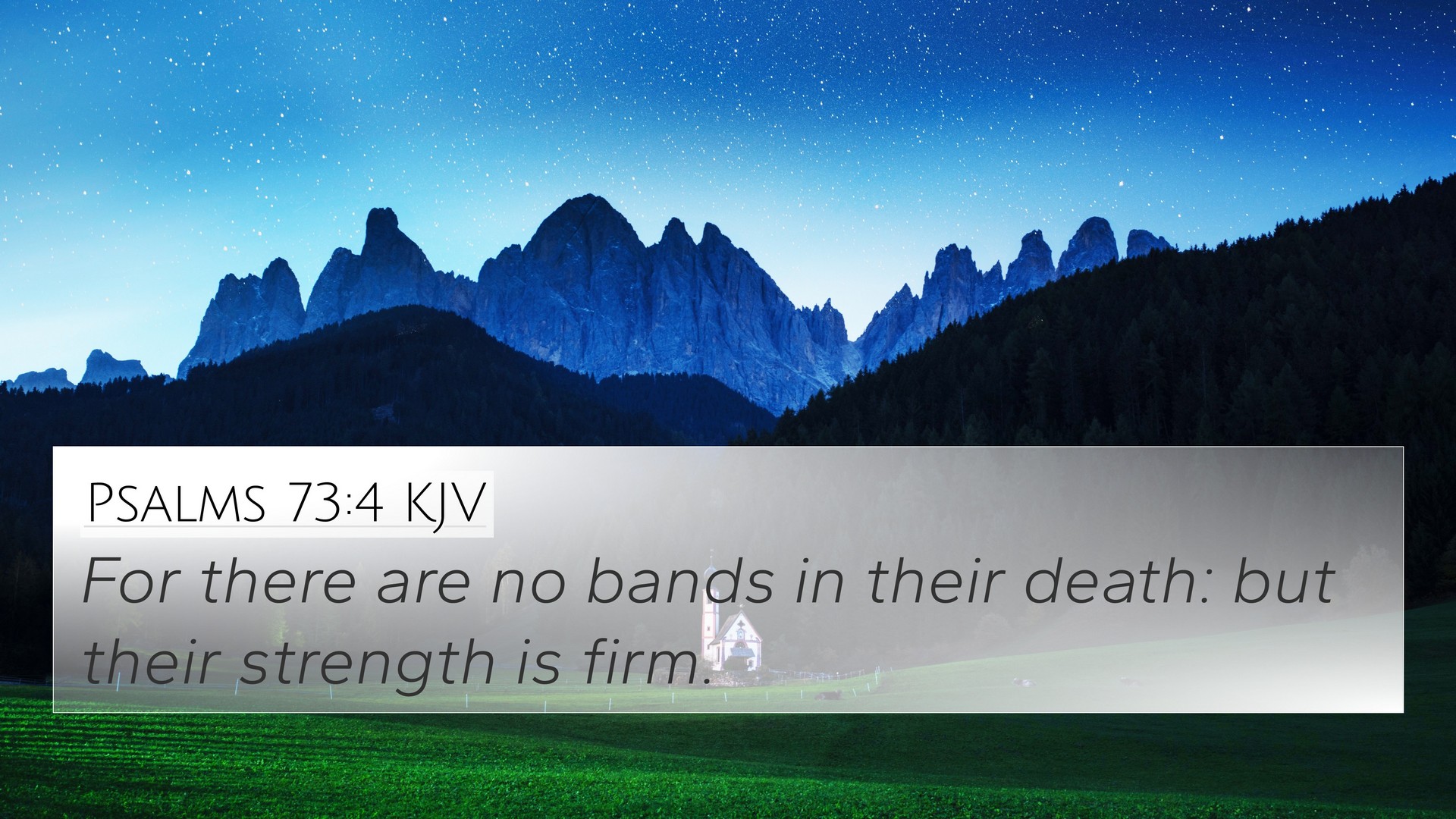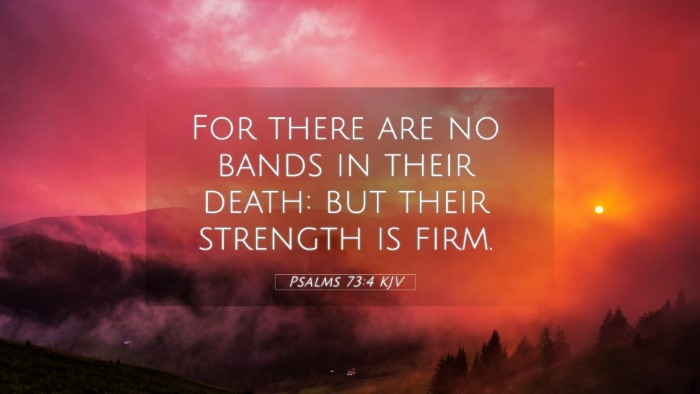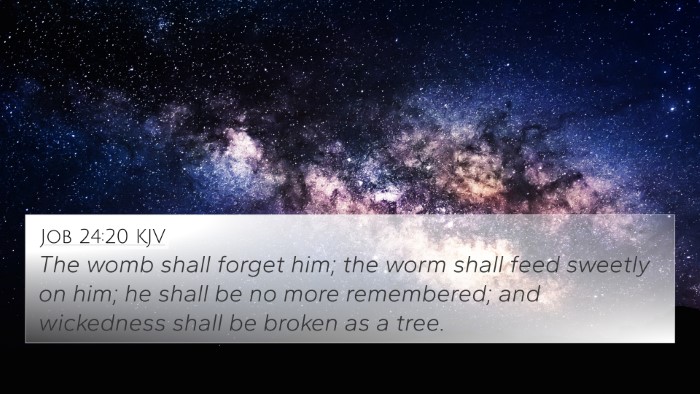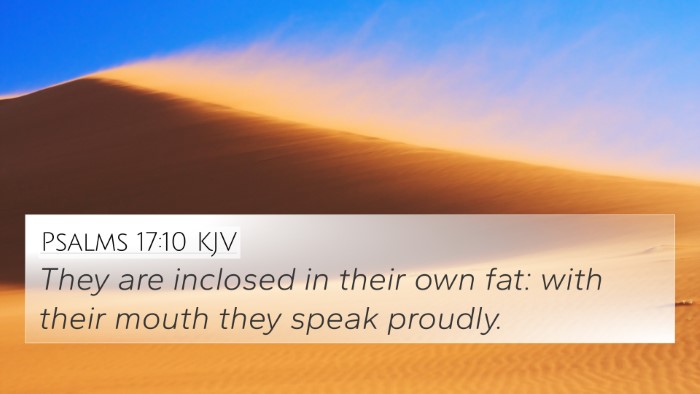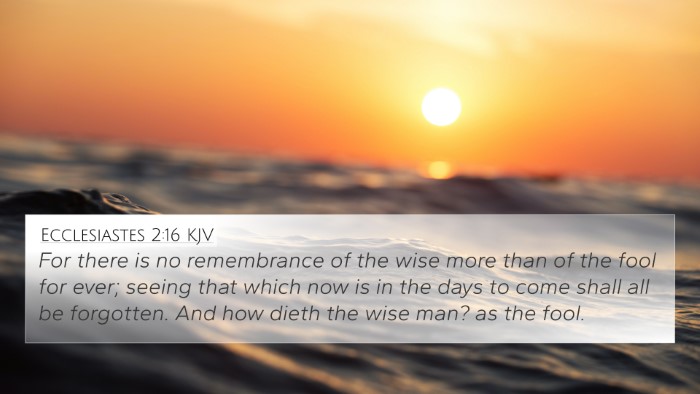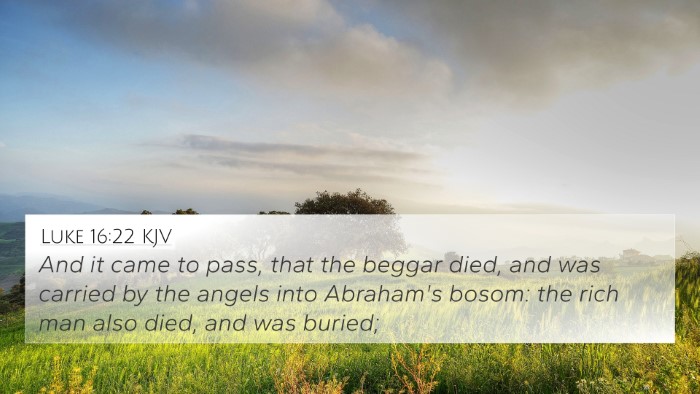Bible Verse Meaning for Psalms 73:4
Psalms 73:4 states, "For there are no pains in their death, but their strength is firm." This verse highlights the apparent prosperity of the wicked, suggesting that they face little to no hardship as they flourish in life. Below is a summary of the verse's meaning derived from public domain commentaries.
Insights from Public Domain Commentaries
-
Matthew Henry's Commentary:
Matthew Henry discusses the seeming ease with which the ungodly live their lives, contrasting their circumstances with the struggles of the righteous. He emphasizes that the "pains" referenced in the verse indicate a lack of spiritual turmoil for the unrighteous, even in death, which raises questions about divine justice. Henry encourages readers to look beyond mere appearances and trust in God’s ultimate judgment.
-
Albert Barnes' Notes:
Barnes interprets the verse in the context of observing the wicked who seemingly experience no serious struggles or afflictions. He points out the contrast between the inward struggles of the righteous and the outward success of the wicked. Barnes stresses that believers should not be disheartened by the transient success of the ungodly, as their end is ultimately different from that of the righteous.
-
Adam Clarke's Commentary:
Clarke offers a detailed view on the phrase "strength is firm," noting that the wicked appear to possess a strong constitution that prevents them from experiencing the typical frailties of life. He reflects on the irony of how the wicked seem untroubled, while the faithful often endure various trials. Clarke urges believers to remember that these external circumstances do not reflect the spiritual reality and ultimate fates of individuals.
Cross-References for Psalms 73:4
This verse can be cross-referenced with the following Biblical passages that also discuss the prosperity of the wicked and the struggles of the righteous:
- Job 21:7: "Why do the wicked live, reach old age, and grow mighty in power?" - This parallels the inquiry of why the ungodly prosper.
- Psalm 37:1-2: "Fret not yourself because of evildoers; be not envious of wrongdoers! For they will soon fade like the grass and wither like the green herb." - A reminder for believers not to envy those who seem to thrive.
- Ecclesiastes 7:15: "In my vain life I have seen everything; there is a righteous man who perishes in his righteousness, and there is a wicked man who prolongs his life in his evil doing." - Echoes the same theme of the reverse of expected justice.
- Jeremiah 12:1: "Righteous are you, O Lord, when I complain to you; yet I would plead my case before you. Why does the way of the wicked prosper?" - A direct inquiry about the prosperity of the wicked.
- Habakkuk 1:13: "You who are of purer eyes than to see evil and cannot look at wrong, why do you idly look at traitors and remain silent when the wicked swallows up the man more righteous than he?" - A plea for understanding regarding the prosperity of evildoers.
- Matthew 5:45: "For he makes his sun rise on the evil and on the good, and sends rain on the just and on the unjust." - A reminder that God's common grace is given to both the wicked and the righteous.
- Revelation 20:9-10: Describes the ultimate fate of the wicked, highlighting that their temporary prosperity will come to an end.
Thematic Connections and Interpretations
In analyzing Psalms 73:4 and its connections with other Scripture, it becomes evident that many Biblical texts deal with the theme of divine justice, particularly the enduring question of why the wicked prosper while the righteous suffer. This echoes throughout both the Old and New Testaments:
- This theme is reflected distinctly in the poetic literature of the Psalms, particularly in Psalms 37 and 73, which both emphasize the ultimate conclusion of divine justice.
- The Prophetic books often present similar laments about the prosperity of evildoers, creating a dialogue that links throughout the prophetic literature.
- The example of Job provides a narrative exploration of suffering the righteous endure, which can deepen the understanding of Psalms 73:4 as a lament that challenges the observer's understanding of justice.
Tools for Understanding Cross-References
For those wishing to engage in deeper studies of this verse and its connections, various tools can aid in identifying these links:
- Bible Concordance: A searchable index of words and phrases used in the Bible, helpful for locating related scriptures.
- Bible Reference Resources: Books and databases that facilitate locating cross-references and themes throughout the entire Bible.
- Cross-reference Bible Study Guides: These tools outline systematic approaches for biblical study that include thematic explorations.
- Comprehensive Bible Cross-Reference Materials: Offer extensive listings of biblical cross-references that enhance thematic studies of scriptures.
- Cross-referencing Bible Study Methods: Techniques that encourage connecting verses through thematic or narrative links.
User Intent and Study Applications
For readers seeking to understand more about Psalms 73:4, consider the following inquiries to guide Bible study:
- What verses are related to Psalms 73:4? Engaging in a search for cross-references will lead to a deeper understanding of the verse's implications.
- How do Job 21:7 and Psalms 73:4 connect? Exploring the similarities in these scriptures offers profound insights into the questions of prosperity and justice.
- Similarities between this verse and others: Delving into verses that discuss the enjoyment of sinners can reveal a consistent theme across different texts.
- Identifying connections between Old and New Testament teachings: Reflecting on parallels can broaden the understanding of God's character and justice.
Conclusion:
Psalms 73:4 poignantly captures a common struggle in the human experience: why the wicked can seem so untroubled. This inquiry, backed by insights from various commentaries, encourages reflection on faith, justice, and the ultimate sovereignty of God. By engaging with cross-references and thematic connections, believers can deepen their understanding and find solace in the assurance of God’s ultimate justice.
